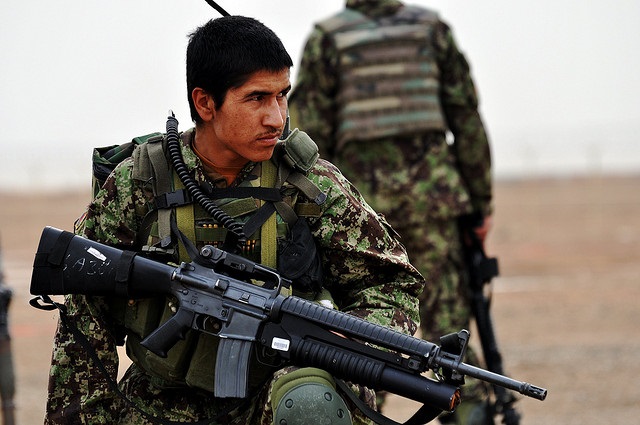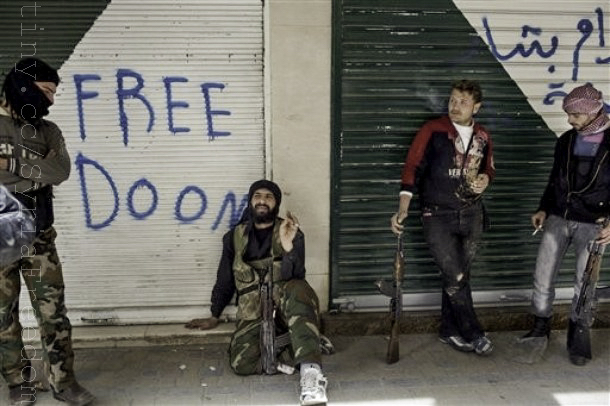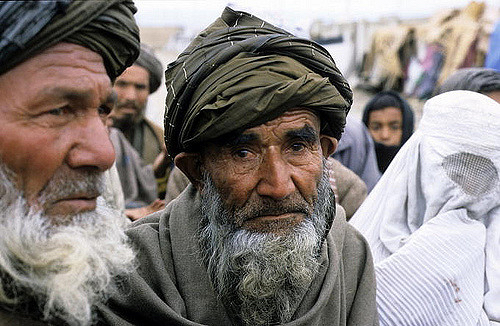S.K. Malik’s Quranic Concept of War illustrates that during the late 1970s, the Pakistani military began adopting hardline conceptions of jihad in order to resolve a major crisis in national morale. This allowed the military to rehabilitate itself following a series of major defeats, and move against leftist and secessionist factions in the country.
Malik believes that jihad can be applied to psychological factors of warfare. He proceeds with a brief overview of morale in the Western canon, beginning with the Napoleonic Wars. English military theorist Liddell Hart is quoted as praising Carl von Clausewitz, who “raised his voice against the geometrical school of thought, then more fashionable, [and] showed that the human spirit was infinitely more important than operational lines and angles.” Alfred H. Burne is described as identifying “a set of four strands which [combine] together to win a war,” including the commander, troops, resources, and morale.
Malik argues that this increased emphasis on the emotional and psychological state of soldiers and civilians is a result of the Western modernization process. Thinkers like Clausewitz placed increased emphasis on them following the Napoleonic Wars, and they were revitalized twice more as a result of trench warfare in World War I, and deterrence politics in the Cold War.
Of course, in his view, the Qu’ran has already interrogated many of these points because of how jihad focuses on the spiritual requirements of warfare. He proceeds by discussing the spiritual character of jihad in relation to morale, particularly in two settings. One is jihad as it heightens the morale of the pious soldier-citizen, and the other is jihad as it crushes the morale of enemy factions.
Malik initiates this argument by describing fighting as being “in the cause of Allah.” Once that requirement is satisfied, Malik argues that the military is commanded by the Qu’ran to “wage their war with the spirit of a religious duty and obligations.” He quotes verse 216 of Surat al-Baqarah to justify this claim:
Fighting in the cause of Allah is ordained for you, though you dislike it, and it may be that you dislike a thing which is good for you and that you like a thing which is bad for you. Allah knows and you know not.
However, he does not limit its scope to the military, as a result of his interests in total war. Malik explicitly states that “this Qu’ranic injunction adds new facets and depths to the concept of a total war. It makes a Muslim citizen answerable both to the State and to Allah in the fulfilment of this divine obligation.” Jihad is therefore a military activity, but as an expression of total war, also requires the obedience and discipline of the militarized citizen.
This discursive leap isn’t surprising given that Pakistan was ruled by General Zia ul-Haq’s military theocracy during the 1979 publication of this book. Pakistan was in the midst of religiously-inflected authoritarian politics, and its reaction to the India-Pakistan Wars of 1965 and 1971, and the surprise resignation of General Ayub Khan in 1969, was severe enough to warrant a claim that the disciplined soldier-citizen should be “answerable both to the State and to Allah.” It is the context in which an implied link between jihad and authoritarian totality runs throughout the book.
For instance, Malik interprets multiple Surahs as arguing that “man’s total submission” is the “’price’ of heavenly help,” and that Muslims were commanded “to come up to divine standards and qualifications to earn the divine aid.” He argues that the internal spiritual struggle of the greater jihad must be expressed in order to best support the framework of the Islamic state, and that as a result, civilians must work to “divine standards” as much as the military. It shouldn’t surprise readers that his rhetoric on this point seems to channel Weberian conceptions of the Protestant Work Ethic:
Let us, therefore, be in no doubt that we are entitled to only that which we earn and strive for. We cannot harvest any more than what we grow and nourish. Should we fail to come up to the divine standards, we shall not only lose the heavenly help and assistance but might incur God’s wrath instead.
Burne’s ‘four strands’ are apparent in these arguments, since they rely on a conception of warfare involving all the resources of a society deployed towards a common end that is justified by militant Qu’ranic interpretation. Malik’s objective is clearly to apply jihad to a perceived deficiency in the Pakistani martial spirit, as illustrated by the widespread decline of the Pakistani military’s strategic and moral legitimacy following the independence of Bangladesh in 1971.
Religious fervour based in jihad would lead to a tangible increase in morale, and as a result, the actual combat performance of the militarized Islamic Republic in totality. After all, as Malik writes, “we should enter upon the ‘war of muscles’ having already won the ‘war of will.’”
It isn’t difficult to spot that Malik is responding to a period of internal crisis by recommending that jihad be used to introduce an element of transcendence in embattled state structures. He obviously praises the Qu’ranic dimensions of warfare on these grounds, arguing that they “[conferred] upon [the early Muslims] a personality so strong and overbearing as to prove themselves equal to, indeed dominate, every contingency in war.”
Indeed, the reason that the early Muslims “proved to be vastly more superior and effective than the ‘hollow’ expertise of the enemies” is because jihad “provided them with a firm and durable platform to launch effective psychological and moral attacks against their mortal foes.” Malik believed that Pakistan, beset with internal struggles, and facing a larger and more sophisticated Indian military, needed to take spiritual guidance from hardline interpretations of the Qu’ran in order to preserve itself through the crisis.
This strategy ultimately worked because figures like Malik ensured that jihad would also frame a surge of violence against the leftist and secessionist forces most threatening to the status quo. He is explicit about the role that militant fanaticism has to play in a reactionary political landscape:
Terror cannot be struck into the hearts of an army by merely cutting its lines of communication or depriving it of its routes of withdrawal. It is basically related to the strength or weakness of the human soul. It can be instilled only if the opponent’s Faith is destroyed. […] To instill terror into the hearts of the enemy, it is essential in the ultimate analysis, to dislocate his Faith. […] To be credible and effective, the strategy of deterrence must be capable of striking terror into the hearts of the enemy.
Raising the morale of a militarized Pakistani society is therefore only half the battle. The morale of its opposition, as exemplified by parliamentary factions like the Pakistan People’s Party, and militant organizations like the Baluch Liberation Front, must be completely broken. Malik speaks of “dislocating Faith” to express the full nature of the alleged problem, which in his view, requires a form of existential warfare that can “strike terror into the hearts of the enemy.”
It is important to reflect on the fact that Malik is not the only figure in this period to advocate for religious zealotry in reaction to threatening developments in Pakistani society. He shares much of his rhetoric on jihad with militant preachers like Maulana Haq Nawaz Jhangvi, and his desire to wage a total war framed by Islam was also being expressed by a variety of actors on issues as diverse as the status of minorities, the classification of ‘non-Muslim’ in state functions, the role of women in the public and private spheres, and labour mobilization in the country. This impulse began to coalesce in the early 1970s, and has continued to affect Pakistan through a deluge of religiously-justified violence, eventually including terrorism against the military itself.
Photograph courtesy of Helmlandblog. Published under a Creative Commons License.





